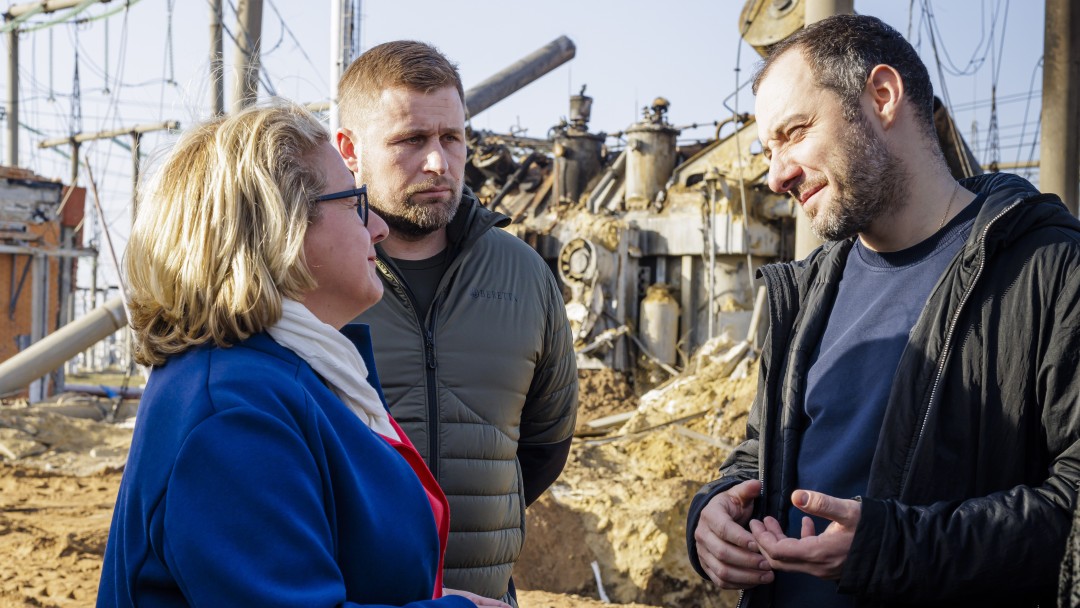Interview with Svenja Schulze
Development Minister Svenja Schulze in an interview with Michael Ruffert on the need to ensure a socially just transition for a sustainable energy transformation.

The countries of the Global South have enormous potential for harnessing renewable energy – significantly more than any foreseeable increase in energy demand. What is more, many developing countries and emerging economies have the critical mineral resources that are essential for the sustainable transformation of the energy system, for batteries, for wind turbines and photovoltaic systems.
This means that Africa could become a global leader in renewable energy use and embark directly on a green development path. To pave the way for that, however, we need to intensify our international efforts considerably to sustainably meet the growing energy needs of the Global South.
Unfortunately, the latest figures show we are not on track. If expansion continues at the present pace, 660 million people will still have no access to electricity by 2030. Investment in the energy sector clearly needs to be significantly stepped up worldwide. And it is particularly important that more attention should be paid to Africa. Our neighbouring continent must no longer remain underrepresented in international financial flows to the energy sector. The first African Climate Summit showed that Africa has a great deal to offer when it comes to concrete solutions for more climate protection and sustainable energy supply. If Europe and Africa join forces, we can both benefit from the climate-friendly transformation of the global economy.
That mammoth task cannot be accomplished by state support alone, so it is crucial that markets should become attractive for private capital. Our development cooperation programmes are thus also focused on helping partner countries shape regional energy market environments.
The challenge of global energy security is always to bring energy supply and demand into line. That challenge is not diminished by renewables’ growing share of global power supply and, in some cases, fluctuations in output depending on weather and time of day. Digital solutions, such as smart metering systems and innovative communication technologies, are therefore a key factor in modernising electricity grids or integrating electricity markets across borders.
The BMZ helps developing countries and emerging economies create the conditions needed for investment in modern energy systems, especially in the development and expansion of power grids. It also helps facilitate cross-border electricity trade and make electricity systems more flexible, for example by promoting storage technologies and the digitalisation of demand and grid control.

Green hydrogen will play a role especially in sectors where it is not possible to decarbonise by direct use of renewable electricity. That is the case, for example, in the steel industry, parts of the chemical industry and parts of the transport sector. Many of our partner countries have massive potential for the production of green hydrogen and its derivatives. In addition, the development of a hydrogen market offers opportunities for local value creation, training and skilled jobs. Production of green hydrogen could also play an important role in helping partner countries achieve climate neutrality, global development goals and a socially just transition.
In light of those impacts, the BMZ attaches major importance to facilitating technology transfers that will help developing countries and emerging countries create a local green hydrogen economy, develop local and regional value chains and establish their own hydrogen-based industries.
As Development Minister, I am committed to a climate and energy transition that is socially fair and equitable. Wherever possible, the negative impacts that structural shifts in production and employment can have on local communities need to be avoided, or at least cushioned, by labour market and social policy measures. Above all, of course, the large-scale expansion of renewables itself offers enormous employment potential and jobs for a growing, very young and increasingly skilled population. My ministry supports such change processes with vocational training programmes, demand-based training models and the development of social security systems.
Our multilateral Just Energy Transition Partnerships (JETPs) – which are supported by the German government and forged with countries implementing ambitious climate policy strategies – are a particularly important instrument for pursuing the goal of a socially just coal phase-out and the implementation of the global energy transition.
Share page
To share the content of this page with your network, click on one of the icons below.
Note on data protection: When you share content, your personal data is transferred to the selected network.
Data protection
Alternatively, you can also copy the short link: https://www.kfw-entwicklungsbank.de/s/enzBw1BL
Copy link Link copied